
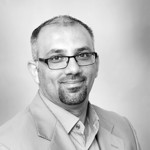
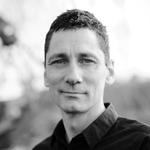
Thomas Fruergaard Astrup, former Professor at the Department of Environmental Engineering of the Technical University of Denmark, works at Ramboll Denmark as sustainability lead in the global energy division. He has an impressive career in research, which includes activities related to environmental sustainability of circular economy and waste management, for example energy and resource recovery, circularity of materials and characterisation of waste, and sustainability assessment modelling such as life-cycle assessment (LCA) and life cycle costing (LCC) at technology and system level. He has authored a range of international journal articles and conference proceedings within these topics and is a member of international research groups and a referee for international scientific journals within in the field. He also manages a wide range of research projects funded by Danish municipalities, waste management companies, and research programmes.
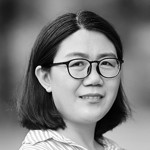
Professor Dezhen Chen is the director of the Institute of Thermal & Environmental Engineering in Tongji University since 2013 and had been promoted to be professor since 2005. Since 1992 Dezhen Chen has been working with municipal solid waste (MSW) incineration and the related pollution control when she began her master thesis, since then she has been working in the WM area with the similar topics for 26 years. Her research interests include innovative waste to energy technology development, incineration flue gas cleaning, MSWI fly ash disposal, life cycle assessment (LCA) of waste management and technologies. She has published about 130 papers in Chinese & international journals and own more than 20 patents, including 2 American patents.
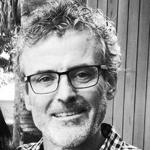
William Clarke has 20 years of experience as researcher in bioengineering processes for solid organic waste. He has been one of the pioneers in intensive landfill based treatment processes, publishing extensively on leach-bed technology and the solubilisation of solid organic waste. His research group was one of the first to characterise the microbial colonisation and degradation processes for solid organic waste. He is Professor and Remondis Chair in the Schools of Civil and Chemical Engineering at the University of Queensland. Professor Clarke is also the Director of the Centre for Solid Waste Bioprocessing, a collaboration between Remondis Pty Ltd, leading Australian environmental services company, and University of Queensland. The Centre has 3 research programs: Landfill Research, Bio-covers and Utilisation of Waste in the Resource Industry. Bill has over 100 journal and conference publications. He is on the Editorial Board for Waste Management, the leading journal in this field. He is also active in consulting, particularly in assessing the energy value of organic resources. He teaches in the Schools of Civil Engineering and Chemical Engineering programs solid waste management and environmental systems modelling.
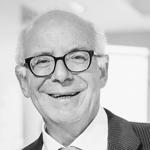
Full Professor of Solid Waste Management, he retired since September 2018 from the University of Padova where he leaded the Research Center of Environmental Engineering. Former President of the School of Environmental and Engineering at the same University from 2000 to 2013. From 2009 to 2017 he was Editor in Chief of Waste Management, the IWWG international scientific journal on waste management published by Elsevier. From 2018 he is Editor in Chief of DETRITUS, the new IWWG journal for Waste Resources and Residues, published by CISA Publisher. He was President of IWWG (International Waste Working Group) from 2004 until 2009 , and currently is a member, of the Managing Board of the same Association. In 2017 he was recipient of the prestigious "A Life for Waste" Award. He has given a series of talks and presentations in conferences on Waste Management and landfilling throughout the world. He is author of more than 150 scientific papers and five international books on waste management, published by Academic Press, Elsevier, EF and Spon.
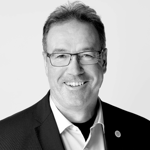
Michael is full professor of Waste Management and Material Flow at the faculty of Agricultural and Environmental Science, University of Rostock, Germany. He is the Scientific Director of the German Biomass Research Centre (DBFZ) in Leipzig and Member of Scientific Advisory Boards for different national and international conferences and journals. He is author of over 300 articles, chapters in books and journals. His research activity is oriented to: fundamental and applied aspects of waste management, with focus on technological, environmental and economic aspects to mechanical, biological and thermal treatment systems of waste and biomass in different recycling and recovery routes.
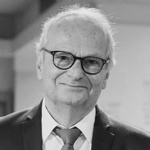
Rainer Stegmann was Professor from 1982 to 1990 at the Institute of Environmental Protection and from 1991 to 2008 Head of the Institute of Waste Management at the Technical University of Hamburg, Germany. He retired in March 2008. He is one of the prominent researchers in the field of waste management and provided in particular fundamental scientific contributions on sustainable landfilling, anaerobic digestion, biogas generation and control, treatment of contaminated soil. He co-ordinated several international and national research projects, and was member of the environmental advisory board of Shanks, England. From 2009 until 2011 he was director of the R3C Research Center at the Nanyang University of Technology, Singapore, for which he is now scientific advisor. He is co-organiser of several national and international conferences and has published more than 300 scientific papers and several books. Since 2008 he has been the chairman of IWWG (International Waste Working Group).
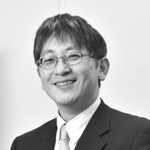
Dr. Masaki Takaoka is a full professor in Department of Environmental Engineering, Graduate School of Engineering, Kyoto University, Japan. After graduation of Master course in Department of Environmental and Sanitary Engineering, Kyoto University in 1993, He worked as an assistant professor in the same department. He received his Doctor of Engineering degree in 2001. Since 2011, he was a full professor in the present department. His major subject is Management and Treatment of Solid Waste. Particularly his current research interests include energy from waste including municipal waste, sewage sludge etc., recovery of valuable metal and substances from waste, and control of toxic substances such as mercury, Dioxins and radioactive substances. As activities in international academic societies, he is an associate editor in Journal of Material Cycles and Waste Management since 2006 and Waste Management since 2019, and was a board member in sludge management, a specialist group of International Water Association (IWA) from 2007 to 2019. He is the author of over 20 books on environmental engineering and over 250 research papers published in peer reviewed journals. He has received a number of awards for his researches and contributions from scientific associations and Ministry of the Environment, Japan.
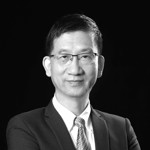
Professor Jianhua Yan is the vice president of Zhejiang University, director of National Engineering Laboratory for Waste Incineration Technology and Equipment, and chair professor of the Cheung Kong Scholars Award Program. His major research interests include clean combustion, pyrolysis and gasification, pollutant control, combustion acquisition, environmental protection in the energy conversion process and waste derived energy, etc. He has published 305 scientific papers and eight books. He owns 57 Chinese invention patents. He got one State Technology Invention Award (second prize), three State Science and Technology Progress Awards (second prize) and one State Innovation Team Award. Professor Yan served as co-chair of the Association of Chinese Graduate School (ACGS) from 2012 to 2016. He is a member of the Discipline Appraisal Group under the State Council. He is vice chairman of the National Alliance of Innovative Waste to Energy.